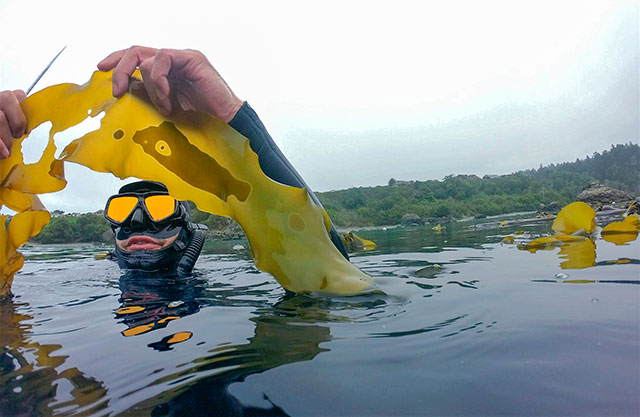Over time, coastal kelp has decreased by 95% due to the effects of global warming. With its ability to help regulate water temperature, pH, and other important factors, kelp is a keystone species with significant impacts on ocean habitats.
“Kelp is so important in the sense of climate change,” explains Natural Resources graduate student Kalani Ortiz. “It actually takes carbon from the air and stores it. Here on our farm, we’re collecting data to understand how kelp can grow in Northern California.”
Kelp cultivation starts at the Marine Lab in Trinidad, where students and researchers start kelp on lines until they’re big enough to be transferred to Humboldt Bay. In addition to combatting the effects of climate change, kelp is increasingly being used across the planet for food, in pharmaceuticals, and even as a substitute for plastic.
“We’re excited to be the first pilot seaweed farm so we can provide information for any farmers or local people who want to learn more about bull kelp,” says Ortiz.
